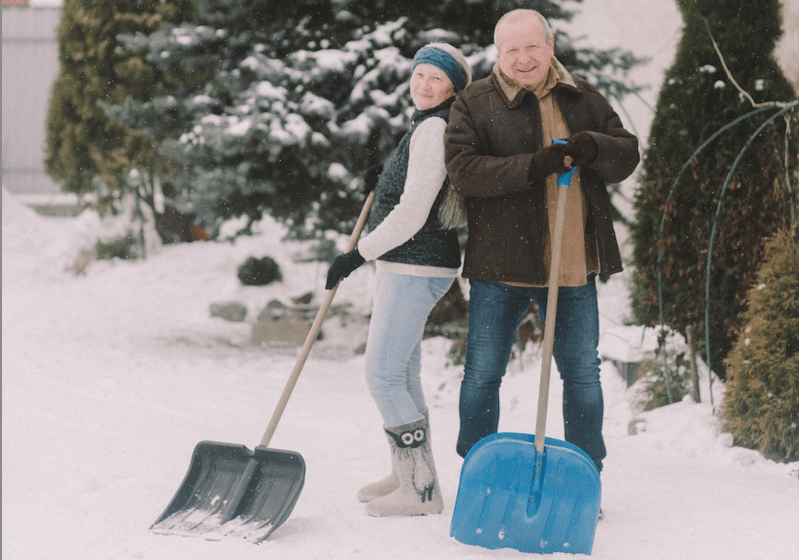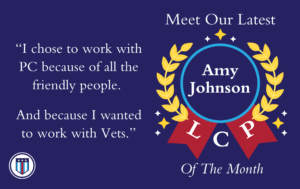Winter will officially arrive next week, bringing with it the holiday season, snowball fights, homemade cookies, and cozy hot chocolate. But winter also brings an increased risk of illness or injury – especially for those of us above the age of 65.
To ensure you and your loved ones stay safe, warm, and merry this winter, we’ve put together the following list of some of the most common winter risks, and how to avoid or prevent them.
RISK: Hypothermia
PREVENTION: Older adults are known to lose body heat faster than others. This problem is made worse if you have diabetes or thyroid problems, which make it harder to maintain a warm body temperature. To prevent hypothermia, you should:
- Dress in many layers of warm clothing – whether you’re inside or outside. This is especially important for nighttime when the temperatures drop even further. If clothes become damp or wet at any point, change out of them immediately.
- Check your house to see if you’re losing heat anywhere. Look for gaps around windows or doors and fill them with caulk to ensure your heat stays inside. It also helps to keep blinds and curtains closed as much as possible.
- Set your thermostat to at least 68 degrees. To save on your heating bill, close off unused rooms or vents.
- Be aware of early signs of hypothermia. This includes cold feet and hands, puffy or swollen face, slow or slurred speech, and acting sleepy, angry, or confused. If these symptoms are noticed, call 911 immediately, gently wrap yourself or the person in many layers, and get something warm to drink.
RISK: Frostbite
PREVENTION: People with heart disease and other circulation problems are at a higher risk for frostbite. The most common places to get frostbite include the nose, ears, fingers, and toes. To avoid frostbite, it helps to:
- Cover up as much as possible. If you notice your skin is becoming red or it hurts, go inside to warm up right away.
- Know the warning signs of frostbite. If your skin looks white or ashy, feels hard or waxy, or is numb, run the area under warm (not hot) water immediately.
RISK: Injury
PREVENTION: With the presence of snow and ice, the chances of injury skyrocket. This could include:
- Snow shoveling injury – This strenuous activity could put too much strain on your heart and lead to injury, especially if you have heart disease, problems with balance, or osteoporosis. Ask your doctor if they think you are capable of shoveling snow and, if not, ask a family member or friend to help.
- Slips and falls – It’s nearly impossible to completely avoid snow and ice in midwest winters. To reduce the risk of slipping, make sure all paths are clear and salted, wear non-skid boots, and, if you use a cane, consider using an ice pick-like attachment for additional traction.
RISK: House fires or carbon monoxide poisoning
PREVENTION: As temperatures drop, many people use fires or other heating sources like natural gas or kerosene to keep their homes warm. When using any heating source, exercise caution by making sure you:
- Properly ventilate your house. Kerosene heaters in particular produce carbon monoxide, a deadly gas with no smell, which needs to be properly vented to prevent poisoning. Warning signs of carbon monoxide poisoning include headache, weakness, nausea or vomiting, confusion, blurred vision, and loss of consciousness. Get into fresh air and call for help immediately if you notice these symptoms.
- Install smoke detectors and carbon monoxide detectors. It’s best to place these in areas near fireplaces, wood stoves, or kerosene heaters.
- Ensure heat sources are at least 3 feet away from anything that could catch fire, such as curtains or furniture.
RISK: Driving accidents
PREVENTION: Driving in winter conditions is extremely difficult and dangerous, especially for seniors. To be as safe as possible when traveling, you should:
- Winterize your car – Have your wipers, tires, and antifreeze checked to ensure your car is ready for any weather.
- Always take a cell phone with you and tell someone where you are planning to go.
- Stock your car with the essentials: first aid kit, warm clothes, booster cables, windshield scraper, shovel, salt, or sand, water, and a flashlight.
RISK: Winter weather emergencies
PREVENTION: Establish a plan ahead of time in the event of a weather emergency. Have a plan to stay with someone else if your power goes out, and make sure you have emergency supplies of food, water, and any prescriptions at your home just in case.
RISK: Loneliness, isolation, or seasonal depression
PREVENTION: While it may be comforting to stay home all day every day during the cold winter months, this also can lead to feelings of isolation or depression. To prevent this from happening to you or your loved ones, plan to:
- Have family or friends visit occasionally to check in on you and keep you company.
- Virtually visit with friends or family using technology such as Zoom, FaceTime, or Google Meet.
- Socialize with our Life Care Professionals while they are in your home taking care of you.
There may be a lot of risks associated with winter, but that doesn’t need to hold you back from making the most of the season! The Kennedy Care family wishes you and yours a safe and happy winter.




